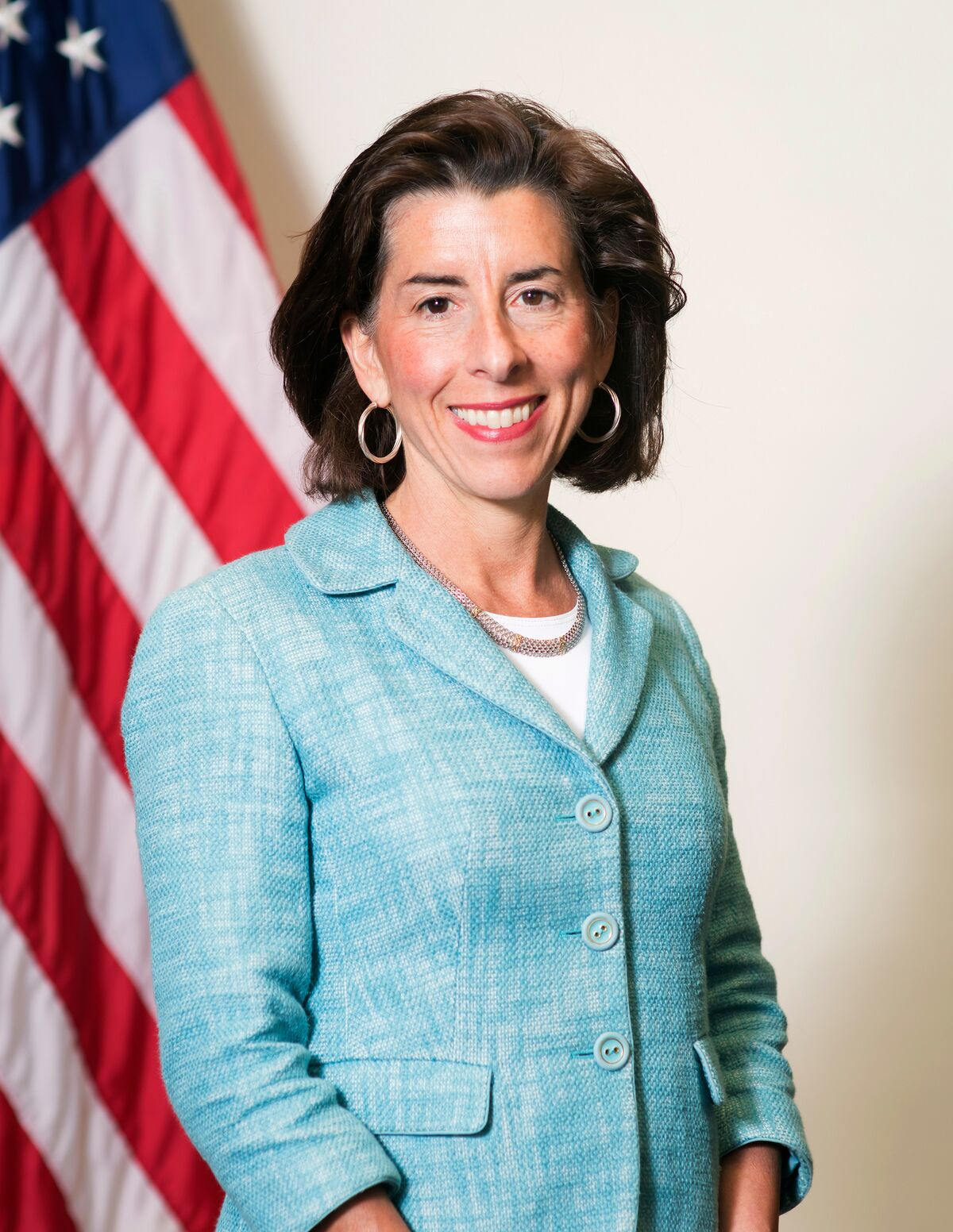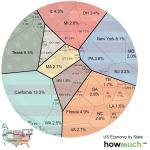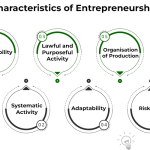Gina Raimondo, the dynamic former governor of Rhode Island and current U.S. Commerce Secretary, is a powerful force in shaping the future of American economic policies. Known for her progressive approach to governance, she has made significant contributions to enhancing U.S. competitiveness under the Biden administration. During a recent interview, Raimondo emphasized that progress often requires change, even if it involves “breaking things” along the way. Her tenure as Rhode Island’s governor showcased her commitment to economic reform, including raising the minimum wage and cutting taxes, thereby laying the groundwork for a more equitable economy. As she continues to advocate for new strategies in American economic policy, Raimondo’s insights offer a glimpse into the future of U.S. competitiveness and the importance of effective governance.
In exploring the impact of Gina Raimondo’s leadership, one must consider how her initiatives drive the evolution of economic strategies within the United States. As a key player in the Biden administration, she represents a new era of policymaking that focuses on innovation and inclusivity. Her ability to navigate complex economic landscapes while ensuring fairness for all citizens highlights a crucial shift in political dialogues. This examination of her contributions reveals not only her dedication to improving US competitiveness but also her understanding of the delicate balance between regulation and business growth. Ultimately, Raimondo embodies a modern approach to governance that aligns economic advancement with social responsibility.
Gina Raimondo’s Approach to Economic Change
Gina Raimondo’s tenure as both the Rhode Island governor and U.S. Commerce Secretary has been characterized by a unique approach to economic reform. She emphasizes that true progress often requires a willingness to ‘break things’ to make way for improvement. During her time in office, she implemented significant tax cuts while simultaneously raising the minimum wage and making community college tuition-free. These bold economic policies were driven by a commitment to enhance the lives of everyday Americans.
Raimondo argues that merely maintaining the status quo is not an option, particularly when the well-being of citizens is at stake. This philosophy was evident during an Institute of Politics forum, where she discussed her belief that effective execution is critical in policy reform. She noted that while it’s vital to challenge existing norms, it’s equally important to ensure that the changes enacted do not harm those they are designed to help. This fairness-first perspective continues to guide her decisions and initiatives in the public arena.
The Role of the Biden Administration in U.S. Competitiveness
Under the Biden administration, U.S. competitiveness has taken center stage, particularly in response to the challenges posed by the ongoing global health crisis. Gina Raimondo played an essential role in addressing supply chain disruptions that emerged during the COVID-19 pandemic. By focusing on building international relationships and promoting domestic production, she has helped to position the U.S. for better economic resilience and competitiveness in the future.
Her discussions emphasize that the Biden administration believes collaboration with other countries is crucial for America’s success. By engaging with Southeast Asian nations, for instance, the administration seeks to strengthen economic alliances that will help alleviate dependency on foreign supply chains. Raimondo’s insights highlight the importance of innovation and proactive policy measures in securing America’s place in a rapidly evolving global economy.
Forging alliances isn’t the only focus of the Biden administration; legislation such as the CHIPs and Science Act is pivotal for revitalizing domestic manufacturing, particularly in the semiconductor industry. Raimondo points out the national security implications involved in chip production and how the U.S. aims to produce a significant portion of those critical components by 2030. Such initiatives not only promote economic growth but also enhance the sustainability of America’s technological infrastructure.
Moreover, Raimondo acknowledges that while the administration’s efforts have faced criticism, particularly regarding inflation concerns tied to the stimulus measures, they were necessary to support struggling Americans during a time of unprecedented economic upheaval. She underscores the delicate balance required in policymaking, ensuring that economic strategies are tied to social considerations to genuinely uplift all sectors of the workforce.
The Impact of Gina Raimondo’s Policies on Workers and Families
Gina Raimondo’s policies have consistently aimed to address the needs of workers and families, recognizing that economic policies must be inclusive to be effective. During her tenure, she prioritized initiatives that not only created jobs but also ensured that those jobs were accessible to everyone, particularly in terms of childcare support for working parents. This approach reflects her understanding of the modern workforce and the barriers that often keep women and other marginalized groups from entering or remaining in the labor market.
By tying social programs to economic strategies, Raimondo has advocated for a model that views these programs as essential components of workforce development rather than mere social expenditures. This forward-thinking perspective promotes the idea that investing in family support systems ultimately benefits employers as well, who need a stable, capable workforce to succeed. Her initiatives demonstrate a holistic understanding of economic dynamics and a firm commitment to improving the quality of life for all Americans.
Challenges and Successes of the Biden Administration’s Economic Policies
Every administration faces challenges, and the Biden administration is no exception, particularly when it comes to economic policies. Gina Raimondo openly acknowledges the difficulties in navigating a divided Congress and the intricate complexities of implementing substantial policy changes. Despite these obstacles, she emphasizes the significant accomplishments achieved during her time as Commerce Secretary, especially in the context of economic recovery efforts following the COVID-19 pandemic.
According to Raimondo, while criticisms regarding inflation and the scale of stimulus packages have surfaced, it is essential to recognize the context in which these decisions were made. The swift and robust response from the government helped to prevent a more severe economic fallout, demonstrating the tough choices that policymakers must often face. The emphasis on creating a balanced approach to economic stimulus that also incorporates social strategies speaks to her commitment to fostering an economy that works for everyone.
Gina Raimondo’s Vision for Future Economic Policies
Looking forward, Gina Raimondo envisions a future where U.S. economic policies embrace innovation and equitable practices to ensure robust growth. She advocates for maintaining an adaptive mindset in policy-making, which includes reassessing existing regulations and adjusting them to better suit current economic landscapes. Her experience illustrates the importance of not merely reacting to changes but proactively shaping policies that foster sustainable growth and security for American families.
Raimondo’s vision also encompasses strengthening America’s position in the global economy. This includes a focus on technological advancement and the importance of domestic production capabilities, particularly in sectors critical to national security. Her approach aims to merge economic growth with developmental initiatives that prioritize workforce training and equitable access to opportunities, ensuring that all segments of the population can contribute to and benefit from economic prosperity.
Analyzing the Economic Outcomes of Stimulus Packages
The economic stimulus packages enacted during the Biden administration have sparked extensive discussions regarding their efficacy and impact. Gina Raimondo has defended these measures, particularly against critiques suggesting they led to inflation. Reflecting on her time as Rhode Island governor during the pandemic, she provides a personal account of the challenges faced by the state and the urgency behind the stimulus initiatives aimed at protecting jobs and supporting families during economic turmoil.
Raimondo highlights the importance of understanding the broader context of these policies, asserting that a well-planned stimulus can prevent deeper economic crises. She contends that while inflation is a valid concern, the immediate need to support those hit hardest by the pandemic should not be overlooked. This perspective underscores the delicate balance between short-term relief measures and ensuring long-term economic stability.
Gina Raimondo’s Legacy in Rhode Island Politics
In reflecting on her legacy as the governor of Rhode Island, Gina Raimondo’s approach to governance can be summarized by her willingness to confront longstanding challenges head-on. Her tenure is marked by significant policies aimed at tax reduction, wage increases, and regulatory reform, all designed to boost economic opportunities within her state. These decisions were rooted in her commitment to equity and improvement, which continues to resonate in her work at the federal level.
Raimondo’s impact extends beyond legislation; she has inspired a new generation of policymakers to prioritize bold solutions tailored toward modern economic needs. Her leadership style emphasizes the importance of collaboration and engaging with constituents to understand their daily struggles. This balance of policy and people-centered approach exemplifies her dedication to enhancing the quality of life for all Rhode Islanders and serves as a template for how politicians can foster effective and meaningful reforms.
The Importance of Resilient Supply Chains in Economic Strategy
During her time as Commerce Secretary, Gina Raimondo acquired firsthand knowledge about the vulnerabilities within global supply chains, particularly highlighted by the COVID-19 pandemic. This awareness propelled her to advocate for a strategic focus on building resilience in supply chains that not only serves U.S. businesses but also protects American consumers. By understanding the intricacies of supply networks, she initiated efforts to develop a more self-sufficient model that can better withstand global disruptions.
Raimondo’s work emphasizes that America’s competitiveness relies heavily on secure and efficient supply chains. The introduction of policies encouraging domestic manufacturing, alongside foreign relationships fostering mutual benefits, strengthens the U.S. economy while safeguarding national security. Her foresight reflects an understanding that robust supply chains are foundational to a thriving economy, making her perspectives essential in discussions about future economic policies.
Empowering the Workforce: A Plan for Better Jobs
Empowerment of the American workforce is central to Gina Raimondo’s economic philosophy. Recognizing that the labor market must adapt to the evolving needs of today’s economy, she has advocated for policies that not only create jobs but ensure that these jobs provide fair wages and benefits. Her emphasis on integrating family support initiatives into economic strategies reflects a comprehensive approach designed to retain talent and promote workforce stability.
By prioritizing training programs that equip workers with the skills needed for high-demand sectors, Raimondo’s strategies aim to enhance the employability of Americans across various industries. Her vision sees a future where every worker has access to opportunities that not only secure their immediate economic wellbeing but also promote long-term career growth. This empowerment is fundamental to building a robust economy capable of withstanding future challenges and fostering innovation.
Frequently Asked Questions
What role did Gina Raimondo play in the Biden administration?
Gina Raimondo served as the U.S. Secretary of Commerce in the Biden administration, where she focused on enhancing U.S. competitiveness and addressing supply chain issues exacerbated by the COVID-19 pandemic. She worked on initiatives such as the CHIPs and Science Act to bolster domestic semiconductor production, which is crucial for national security.
How did Gina Raimondo impact Rhode Island’s economy during her governorship?
As the governor of Rhode Island, Gina Raimondo implemented significant economic policies, including cutting taxes annually, raising the state minimum wage, and making community college tuition free. These measures aimed to stimulate economic growth and improve opportunities for residents.
What was Gina Raimondo’s strategy for improving U.S. supply chains?
Gina Raimondo’s strategy for improving U.S. supply chains involved building relationships with countries in Southeast Asia and utilizing data analytics to track critical supply chains. This proactive approach was critical during the early days of the COVID-19 pandemic.
How does Gina Raimondo view economic policies in relation to social responsibility?
Gina Raimondo believes that economic policies should be intertwined with social responsibility. She argues that initiatives aimed at improving labor markets, such as childcare plans, are necessary for attracting a diverse workforce and ensuring the effective use of taxpayer money.
What initiatives did Gina Raimondo support to enhance U.S. competitiveness?
During her tenure as Secretary of Commerce, Gina Raimondo supported initiatives like the CHIPs and Science Act, which aims to increase domestic semiconductor production and foster innovation, thus enhancing U.S. competitiveness in the global economy.
What challenges did Gina Raimondo face in the Biden administration?
Gina Raimondo faced challenges in the Biden administration, particularly in navigating a 50-50 Senate and a slim margin in the House. She acknowledged the complexities of getting bipartisan support for various economic measures, which sometimes led to compromises.
How did Gina Raimondo’s background influence her political career?
Gina Raimondo’s political career was influenced by her family background; as the granddaughter of immigrants, she was motivated to advocate for working-class Americans. Her family’s emphasis on hard work instilled a commitment to public service and social equity.
What are Gina Raimondo’s views on free trade and China?
Gina Raimondo advocates for fair free trade practices and cautions against unregulated competition, particularly regarding China’s economic practices. She argues for greater reciprocity in trade agreements to ensure competitive fairness in the global market.
How did Gina Raimondo respond to criticisms of the Biden administration’s stimulus act?
Gina Raimondo defended the Biden administration’s stimulus act, arguing that it was necessary to prevent prolonged unemployment during the pandemic. She emphasized the importance of supporting economic recovery through significant investments.
What lessons does Gina Raimondo draw from her time as Commerce Secretary?
From her tenure as Commerce Secretary, Gina Raimondo learned the importance of balancing bold policy initiatives with careful execution. She acknowledged that while challenges exist in politics, meaningful progress can be achieved through strategic collaboration and commitment to the American worker.
| Key Points | Details |
|---|---|
| Making Positive Change | Gina Raimondo emphasizes that making changes often involves breaking the status quo. She advocates for reform while ensuring that people are not harmed in the process. |
| Legislative Accomplishments | During her tenure, she cut taxes annually, increased the minimum wage, made community colleges tuition-free, and eliminated 30% of state regulations. |
| Approach to Supply Chains | Addressing supply chain disruptions during COVID, Raimondo highlighted the importance of international relationships and cooperation, particularly in sectors critical to national security. |
| CHIPs and Science Act | To bolster domestic semiconductor production, the Biden administration, under Raimondo’s leadership, aimed to enhance national security by increasing U.S. self-reliance in critical technologies. |
| Trade and Economic Strategies | Raimondo discussed the need for fair trade practices, criticizing China for not adhering to rules that allow equitable global commerce. |
| Bipartisan Challenges | Acknowledging the difficulties of bipartisan cooperation in a divided government, Raimondo noted that significant accomplishments were achieved despite challenges. |
| Inflation and Stimulus Debate | Raimondo defended the size of the stimulus package during COVID, arguing that it was necessary to prevent greater unemployment and economic fallout. |
Summary
Gina Raimondo has consistently demonstrated that making impactful changes involves courage and foresight. Her experiences as Governor of Rhode Island and U.S. Commerce Secretary highlight her commitment to social equity and economic reform. By advocating for necessary changes without harming individuals, Raimondo illustrates her leadership philosophy: progress often requires breaking from tradition while fostering collaboration and maintaining fairness. As she continues to influence U.S. economic policy, her understanding of the intricacies of governance and the importance of human connection remains a guiding principle.







